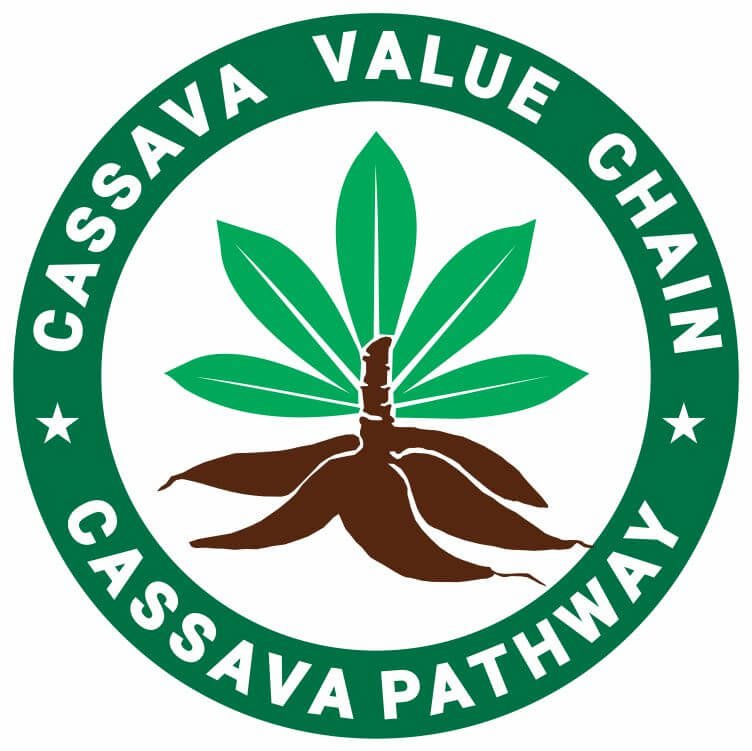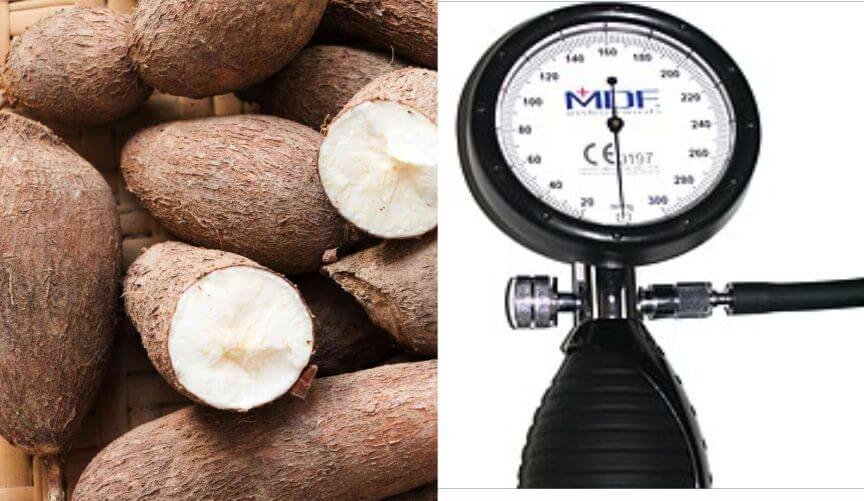Cassava is a root crop with wide consumption and is high in nutrients, including potassium and fiber. But is cassava good for high blood pressure?
Cassava’s high potassium content, fiber, and antioxidants may help lower blood pressure by promoting vasodilation, improving insulin sensitivity, and reducing inflammation, but let’s dig deeper to find out more.
Understanding the connection between cassava and blood pressure can provide valuable insights for those seeking to improve their cardiovascular health.
The Link Between Cassava and Blood Pressure
Apart from serving in the weight loss department, several studies have investigated the potential benefits of cassava consumption on blood pressure:
Let’s take a peek:
1. Lowering Blood Pressure
A study conducted in the Philippines found that cassava in the diet of people with high blood pressure helped to lower systolic and diastolic blood pressure measurements. This reduction is attributed to the high potassium content of cassava.
2. Improving Cholesterol Profiles
Cassava has also redeemed itself with the impact on cholesterol levels which helps cardiovascular health and the control of blood pressure.
The same report above discovered that cassava consumption reduces bad cholesterol (LDL) and its sister, triglycerides.
The saponins and fiber in cassava boast of this effect.
3. Lowering the Risks of Hypertension
A look at the research indicates that the high potassium, fiber, and antioxidant levels in cassava contribute to a lower risk of hypertension attacks.
Related Posts
How Cassava Interacts with Pregnancy
Potential Mechanisms of Action
The beneficial effects of cassava on blood pressure appear to take effect through several mechanisms described below:
1. Potassium-Sodium Balance
The high potassium content of cassava helps to counteract the effects of sodium, which is a known contributor to high blood pressure.
Potassium promotes vasodilation and helps the kidneys excrete excess sodium, leading to a reduction in blood pressure.
2. Enhanced Sensitivity to Insulin
The fiber in cassava may help improve insulin sensitivity, which is important for maintaining healthy blood pressure.
Insulin resistance is a risk factor for hypertension, and a diet rich in fiber-containing foods like cassava may help mitigate this risk.
3. Lowered Inflammation
The antioxidants present in cassava, especially in the leaves, may help reduce inflammation, which is a key driver of hypertension.
By taking care of the underlying inflammatory processes, the cassava diet may contribute to lower blood pressure levels.
4. Cholesterol and Lipid Profile Improvements
The ability of cassava to improve cholesterol and triglyceride levels may also play a role in its blood pressure-lowering effects.
Elevated blood lipids are associated with an increased risk of hypertension, and the favorable changes in lipid profiles observed with cassava consumption may be a pointer to its cardiovascular benefits.
Caution and Considerations
While cassava has shown positive potential in combating high blood pressure, there are a few things to take into consideration for safety:
Methods of Preparation: The way cassava is prepared and consumed can impact its nutritional profile and potential health effects. Proper processing to remove any toxic compounds and ensure the retention of beneficial nutrients is crucial. Cassava should not be eaten raw.
Individual Variability: As with any dietary therapy, the reaction to cassava consumption may be different among people depending on factors such as genetics, overall health status, and baseline blood pressure levels.
Combined Lifestyle Factors: While cassava may be promising in high blood pressure management, it should be seen as part of an approach that includes other lifestyle factors, such as regular physical activity, stress management, and a balanced diet.
Expected Interactions: People with certain medical conditions, such as diabetes or kidney disease, may need to exercise caution when adding cassava to their diet, as it is high in carbohydrates and may interact with certain medications or dietary requirements.
Frequently Asked Questions
Can cassava reduce blood pressure?
Cassava can help reduce blood pressure due to its high potassium and magnesium content, which promote blood vessel relaxation.
Who should not eat cassava?
People with protein deficiency, iodine deficiency, thyroid disease, and pregnant/breastfeeding women should avoid eating cassava regularly due to potential toxicity.
Does cassava raise cholesterol?
Cassava can help reduce LDL cholesterol levels and prevent cardiovascular diseases due to its high fiber content.
Conclusion
Cassava is a nutrient-dense root crop that may help lower blood pressure due to its high potassium, fiber, and antioxidant content.
Studies show it can reduce systolic and diastolic blood pressure, improve cholesterol profiles, and lower hypertension risk.
The benefits are attributed to cassava’s ability to balance sodium-potassium levels, enhance insulin sensitivity, and reduce inflammation.
However, preparation methods and individual factors should be considered when incorporating cassava into a blood pressure management plan.
Citations:
https://paleoproteinbrownie.com/pages/top-three-health-benefits-of-cassava-root
https://www.verywellfit.com/cassava-nutrition-facts-calories-carbs-and-health-benefits-4177847
https://www.health.com/cassava-8607938

Chimeremeze Emeh is a writer and researcher passionate about Africa’s most transformative root crop—cassava. Through his work at cassavavaluechain.com, he explores the entire cassava industry, from cultivation and processing to its diverse applications in food, health, and industrial use.
He also writes for palmoilpalm.com, where he shares his extensive experience and deep-rooted knowledge of palm oil, covering red palm oil, palm kernel oil, and refined products. His work there reflects his lifelong connection to agriculture and his commitment to promoting sustainable value chains in Africa.
Driven by curiosity and purpose, Chimeremeze aims to shed light on how cassava continues to empower communities, strengthen food systems, and link traditional farming wisdom with modern innovation.

